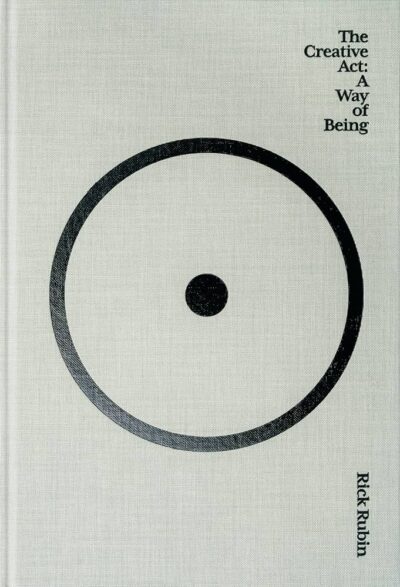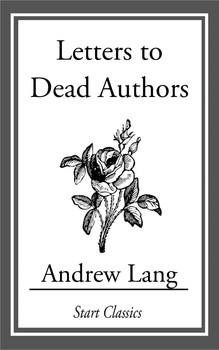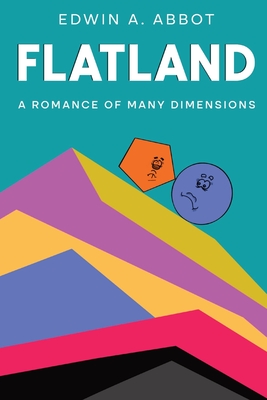182 Results with the "Philosophical" genre
Adventure Fiction (1164)
Biography (435)
Business & Finance (1)
Children's Literature (124)
Comics (6)
Culture (51)
Drama (123)
Dystopian (29)
Fable (86)
Fantasy (1132)
Fantasy (203)
Fiction (1010)
Finance (1)
Gothic Fiction (12)
Historical Fiction (615)
History (122)
Horror (56)
Lifestyle (36)
Literary (404)
Literary Fiction (207)
Memoir (113)
Mystery (422)
Non-fiction (87)
Novel (549)
Paranormal Fiction (96)
Philosophy (45)
Poetry (249)
Political Fiction (14)
Politics (42)
Practical (32)
Psychological (4)
Psychological Thriller (108)
Relationship (6)
Romance Novel (716)
Romantic Melodrama (14)
Satire (91)
Science (46)
Science Fiction (345)
Self-help (68)
Society (65)
Society (2)
Spiritual Growth (1)
story (2)
Thriller (704)
True Crime (56)
view (11)
Women's Fiction (2)
Young Adult (233)
-
Chapter
Chapter 1 — “Uncle Sam”
 Chapter 1 - "Uncle Sam" begins with an unexpected legacy born from an ordinary act: the naming of a hill and town in upstate New York. The choice of “Troy” and “Mount Ida,” though perhaps intended to summon classical grandeur, would later become the quiet backdrop for a national icon’s origin. Amid the daily rhythms of early 19th-century life, Samuel Wilson, a local man known for his cheer and generosity, built more than a business—he built trust. Children called him “Uncle Sam” with…
Chapter 1 - "Uncle Sam" begins with an unexpected legacy born from an ordinary act: the naming of a hill and town in upstate New York. The choice of “Troy” and “Mount Ida,” though perhaps intended to summon classical grandeur, would later become the quiet backdrop for a national icon’s origin. Amid the daily rhythms of early 19th-century life, Samuel Wilson, a local man known for his cheer and generosity, built more than a business—he built trust. Children called him “Uncle Sam” with…-
151.7 K • Ongoing
-
-
 Chapter 33 - The Spirit of History presents not just the chronicle of events, but the embodiment of a man whose life became one with his country’s past. Jules Michelet, driven by a profound calling, gave himself to the task of animating the silent echoes of French history. He did not simply record events—he felt them. To him, dusty records were not remnants of forgotten days but voices waiting to be heard again. With each turn of a page, he believed he was uncovering the living breath of a nation. His…
Chapter 33 - The Spirit of History presents not just the chronicle of events, but the embodiment of a man whose life became one with his country’s past. Jules Michelet, driven by a profound calling, gave himself to the task of animating the silent echoes of French history. He did not simply record events—he felt them. To him, dusty records were not remnants of forgotten days but voices waiting to be heard again. With each turn of a page, he believed he was uncovering the living breath of a nation. His…-
151.7 K • Ongoing
-
-
Chapter
Submerge (The Great Works)
 Immersing oneself in high-caliber artistic and intellectual creations is a transformative practice that fosters depth, refinement, and a heightened sense of appreciation for beauty. The chapter Submerge from The Great Works underscores the power of intentional engagement with masterful works across various mediums, from literature and music to architecture and film. It suggests that by consciously selecting and absorbing content of exceptional quality, we refine our ability to recognize brilliance and…
Immersing oneself in high-caliber artistic and intellectual creations is a transformative practice that fosters depth, refinement, and a heightened sense of appreciation for beauty. The chapter Submerge from The Great Works underscores the power of intentional engagement with masterful works across various mediums, from literature and music to architecture and film. It suggests that by consciously selecting and absorbing content of exceptional quality, we refine our ability to recognize brilliance and…-
341.4 K • Ongoing
-
-
Chapter
The Ecstatic
 The pursuit of creativity is often fueled by The Ecstatic—an indescribable sensation of overwhelming, almost intoxicating joy that emerges when something truly resonates. Whether it’s a breathtaking painting, a haunting melody, or a passage of literature that lingers in the mind long after it has been read, the Ecstatic is what draws both creators and audiences alike into the artistic experience. It’s akin to tasting fruit at the peak of its ripeness, a moment of perfection where everything aligns…
The pursuit of creativity is often fueled by The Ecstatic—an indescribable sensation of overwhelming, almost intoxicating joy that emerges when something truly resonates. Whether it’s a breathtaking painting, a haunting melody, or a passage of literature that lingers in the mind long after it has been read, the Ecstatic is what draws both creators and audiences alike into the artistic experience. It’s akin to tasting fruit at the peak of its ripeness, a moment of perfection where everything aligns…-
341.4 K • Ongoing
-
-
Chapter
Why Make Art?
 Art is more than an individual pursuit; it is an expression that extends beyond the artist, reaching into the collective human experience. The creative drive within artists resembles an instinctual pull, much like a bird’s migration or a river’s course to the sea—an unstoppable force that moves them to create. This impulse is not solely about personal exploration or the pursuit of recognition but rather an innate urge to communicate something meaningful, a desire to share a distinct perspective that…
Art is more than an individual pursuit; it is an expression that extends beyond the artist, reaching into the collective human experience. The creative drive within artists resembles an instinctual pull, much like a bird’s migration or a river’s course to the sea—an unstoppable force that moves them to create. This impulse is not solely about personal exploration or the pursuit of recognition but rather an innate urge to communicate something meaningful, a desire to share a distinct perspective that…-
341.4 K • Ongoing
-
-
Chapter
LETTER–To Theocritus
 Letter to Theocritus opens with a quiet reverence for the music of your verse, the kind that lingers like honey on the tongue or like the scent of warm thyme on a sunlit hillside. You wrote not just about shepherds and nymphs, but about a way of life untouched by ambition and marked by simple, golden joys. One wonders if the afterlife, should it exist, ever matched the beauty of your Sicilian days or whether your soul still roams valleys framed by olive trees and distant blue seas. Your lines gave those…
Letter to Theocritus opens with a quiet reverence for the music of your verse, the kind that lingers like honey on the tongue or like the scent of warm thyme on a sunlit hillside. You wrote not just about shepherds and nymphs, but about a way of life untouched by ambition and marked by simple, golden joys. One wonders if the afterlife, should it exist, ever matched the beauty of your Sicilian days or whether your soul still roams valleys framed by olive trees and distant blue seas. Your lines gave those…-
82.9 K • Ongoing
-
-
 Chapter 12 - The Paris of our Grandparents opens with a nostalgic journey through a city whose charm has shifted with time, filtered through the memories of a woman who witnessed its golden afternoons and political storms. Her recollections are not merely sentimental—they serve as a bridge between generations, showing how a city both molds and is molded by its people. Walking alongside her, one senses how deeply woven the past remains in Paris’s bones. The boulevards, once quiet avenues for carriage…
Chapter 12 - The Paris of our Grandparents opens with a nostalgic journey through a city whose charm has shifted with time, filtered through the memories of a woman who witnessed its golden afternoons and political storms. Her recollections are not merely sentimental—they serve as a bridge between generations, showing how a city both molds and is molded by its people. Walking alongside her, one senses how deeply woven the past remains in Paris’s bones. The boulevards, once quiet avenues for carriage…-
151.7 K • Ongoing
-
-
 Section 12 reveals a deeply rooted system where a person's form dictates their place in society, leaving little room for individuality or change. In this structured world, one's geometric shape determines social status and moral worth. Circles, viewed as the highest class, uphold a doctrine claiming that the more symmetrical a figure, the more virtuous and intelligent it must be. Such a belief leaves no space for merit or effort, reducing identity to mathematical precision. Even minor irregularities, like…
Section 12 reveals a deeply rooted system where a person's form dictates their place in society, leaving little room for individuality or change. In this structured world, one's geometric shape determines social status and moral worth. Circles, viewed as the highest class, uphold a doctrine claiming that the more symmetrical a figure, the more virtuous and intelligent it must be. Such a belief leaves no space for merit or effort, reducing identity to mathematical precision. Even minor irregularities, like…-
92.9 K • Ongoing
-
-
Chapter
Rules
 Creativity flourishes when artists dare to question the limitations imposed by convention, using rules not as restrictions but as temporary stepping stones toward innovation. This chapter explores the distinction between the fixed principles of disciplines like mathematics and science, where laws are unchanging, and the fluid nature of artistic rules, which are more suggestive than binding. Art, unlike scientific formulas, thrives on its ability to evolve, shaped by cultural shifts, personal…
Creativity flourishes when artists dare to question the limitations imposed by convention, using rules not as restrictions but as temporary stepping stones toward innovation. This chapter explores the distinction between the fixed principles of disciplines like mathematics and science, where laws are unchanging, and the fluid nature of artistic rules, which are more suggestive than binding. Art, unlike scientific formulas, thrives on its ability to evolve, shaped by cultural shifts, personal…-
341.4 K • Ongoing
-
-
Chapter
Openness
 Openness challenges the natural human tendency to seek certainty, emphasizing the value of flexibility and curiosity, particularly in creative endeavors. Throughout history, the ability to make quick assessments and form immediate judgments was essential for survival in an unpredictable world. This instinct for categorization has carried into modern life, where people often rely on established patterns and mental shortcuts to process an overwhelming influx of information efficiently. However, while these…
Openness challenges the natural human tendency to seek certainty, emphasizing the value of flexibility and curiosity, particularly in creative endeavors. Throughout history, the ability to make quick assessments and form immediate judgments was essential for survival in an unpredictable world. This instinct for categorization has carried into modern life, where people often rely on established patterns and mental shortcuts to process an overwhelming influx of information efficiently. However, while these…-
341.4 K • Ongoing
-
- 1 2 … 18 Next
